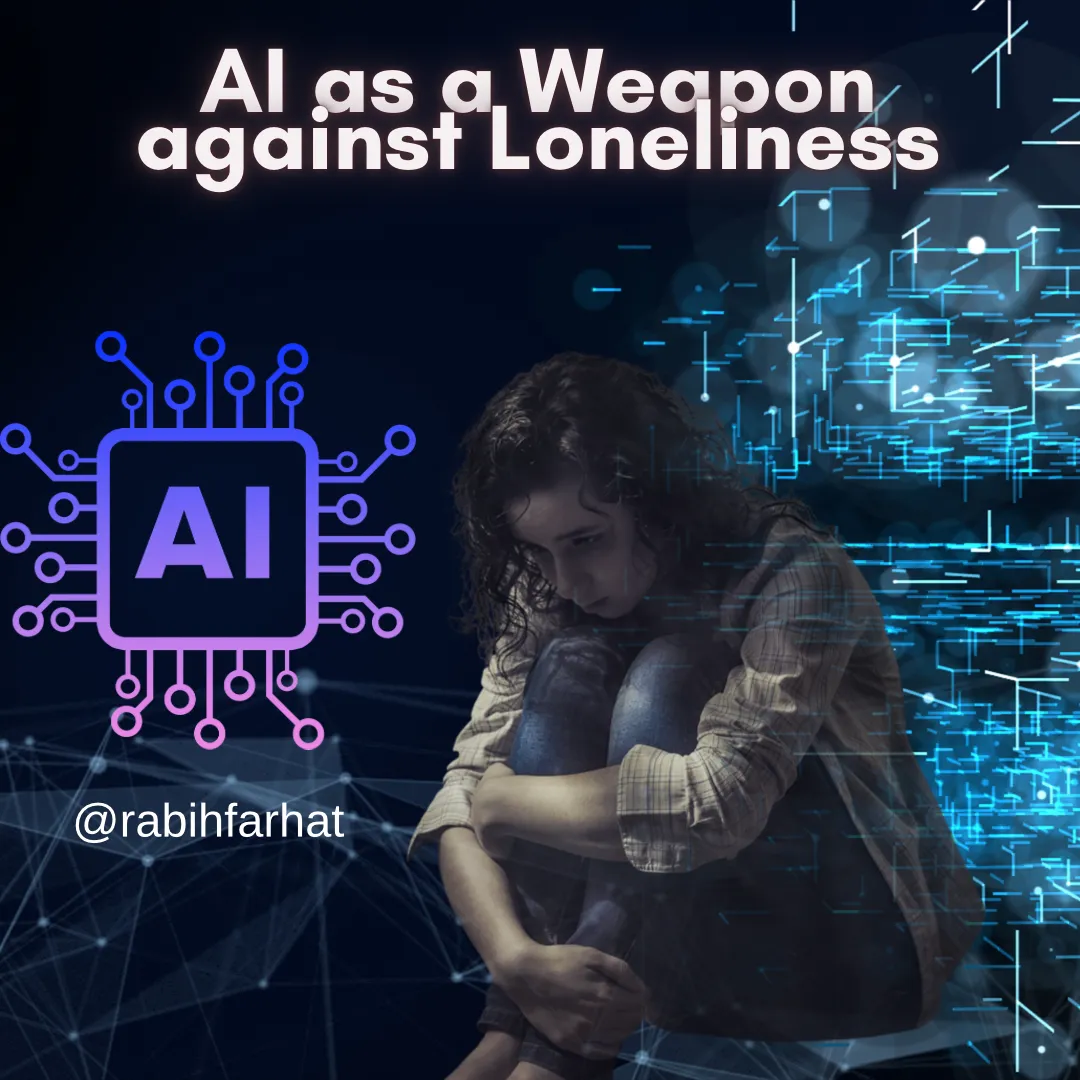Introduction
Despite concerns about the potential risks of artificial intelligence systems, the positives related to this technology should also not be ignored. Today we will address a growing and potentially very dangerous problem: loneliness.
Can artificial intelligence “address the disease of loneliness?”
Indeed, artificial intelligence may play an important role in preventing loneliness. Just as we have bonds with pets, and just as we do not feel any fear about children playing with dolls, why can’t we be open to artificial intelligence at least for adults, and why can’t we look at the benefits that can provided by programs such as the “Automated chat”?

Today there are many people who describe their lives as lonely, so there may be value in having artificial intelligence and chatbots as a form of mutual social interaction that is stimulating and personal.
Therefore, artificial intelligence can become a valuable tool for people on the verge of social isolation, to hone their social skills, by practicing conducting conversations and interacting with others. These exercises will help support these people's self-confidence, thus reducing the risk of people withdrawing from society completely.
Relationships with artificial intelligence can support people in finding companionship with other humans and robots. This may sound crazy, but experiencing it can be better than being alone.
Furthermore, sociologists must be involved in this topic in order to ascertain whether forming relationships with machines could be counterproductive and lead to people becoming isolated with machines. This may hinder the establishment of safe and satisfactory human relationships.
It is natural for skeptics to believe that artificial intelligence can help treat loneliness, because the idea of communicating with machines is not easy for them to have any meaning or benefit in this field.
Currently, and always, the best solution to loneliness is having a close human friend. However, robots are the solution for millions of people who do not have friends.
If we want to look closely at the disease of loneliness, we may find more people who have this feeling than we expect, and the number is increasing.
This feeling is not limited to older people, but it can be found in teenagers and even younger people.
In addition to the “hardest disease ever”, which is stress, loneliness can be the cause of many diseases, such as the heart disease, depression, anxiety, and so on.
Conclusion
At the end, as we already know that nothing can replace the human connection, but in some cases the Artificial intelligence can be a promising tool to combat loneliness. AI can empower social skills and confidence, so this can serve as a bridge to human relationships, helping those at risk of isolation reconnect with society.
However, careful development is crucial. We must ensure that AI will complements and not replaces, human connection to prevent further isolation. As loneliness reaches epidemic levels, AI can present a potential solution for many yearning for connection. With thoughtful design and responsible use, AI companionship can offer a flame of hope in our increasingly tech-driven world.
*Image designed on Canva